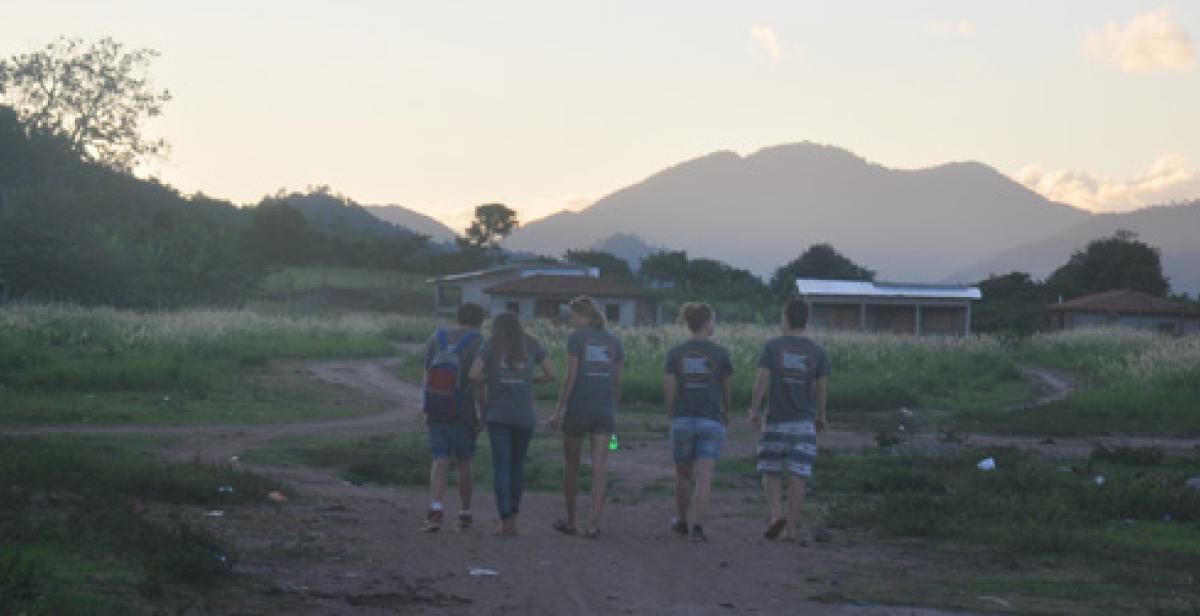The town of Guayape, in which the six of us UK volunteers are spending our 10 week in-country placement, is situated in what is known locally as the Honduran ‘Wild West’ of Olancho. So called for the cowboys – complete with cowboy hats – that roam its landscape, this small town is nestled in a meandering river valley and protected by a range of lush, green hills in all directions. Needless to say, upon arrival we were somewhat overwhelmed by the natural beauty of the place we would be calling home.
It was, however, not long before we realised the extent to which this magnificent landscape has been polluted by the inherent problem of rubbish, and a lack of means by which to dispose of it. We had been briefed on our project, and knew that implementing new systems for effective waste management formed the brunt of the team plan, yet even this did not prepare us for the reality of the situation; the ground is, in places, a carpet of debris formed by the waste products of human consumption, from plastic cups and churros packets to bottles and disguarded packaging.
This lack of an effective waste management system in Guayape threatens more than the aesthetics of the landscape. That many choose to burn their rubbish poses very serious health problems for the population. Smouldering plastics and polystyrenes are a regular sight at the side of the street, their fumes a hazardous concoction of carcinogenic dioxides. The effects of these on the body are far flung, from emphysemia and heart disease to lung cancer. That these effects are heightened for the children that play in close vicinity only serves to worsen an already serious issue.
As Progressio volunteers, we are here to help tackle this problem and set in motion a programme for a cleaner Guayape that reaches beyond our 10 week placement. First, we have to establish where this problem stems from. Is it just the lack of an efficient disposal system, or is it that littering is an engrained attitude in the population here? The causes, it would seem, are inherently linked: because there is no system in place, children grow up with the mentality that dirty streets are the norm. Only last week did we witness a child throw away his plastic cup in our newly created volleyball court in the local park. When we asked him to put it in the bin, he said he couldn’t, because there wasn’t one. Unfortunately, he was right.
The answer is sadly more complicated than simply installing more bins; install new bins and you need to put in place a system for their collection, which requires money and man power. Our multi-faceted plan of action includes working with the local community to maximise the efficiency of the pre-existing, underused rubbish collection service. A recent survey we conducted into the waste disposal habits of the population highlighted that currently only 38% use the service in Guayape, and 50% in Santa Cruz, a figure we hope to boost by improving the collection route and creating information leaflets on the collection schedule, how to recycle and why.
Through a range of workshops we are delivering in the local schools we hope to inform the youth here of the impacts of poor waste disposal and burning rubbish, and what options are available to them to make a difference. An environmental study is also being undertaken to relocate the landfill site for the local area: this is currently located next to a busy road, in close vicinity to a stream and the main water pipe for Guayape, with a high risk of contamination. An outline for a new site has been sent to the environmental secretary for consideration, equi-distant from the Guayape, Santa Cruz and Suyapita districts and far enough away to facilitate the safe burning of rubbish.
With further plans for a week-long cleaning campaign, new signs destined for the local rubbish hot spots, and yesterday’s installation of a plastic bottle organisation system in our own garden, we’re certainly keeping busy. Is is the constant reminder of the waste problem here, and the beautiful surroundings we are lucky enough to enjoy every day, that keeps us motivated to create a cleaner Honduras for all.
Written by ICS volunteer Natasha Dalton



